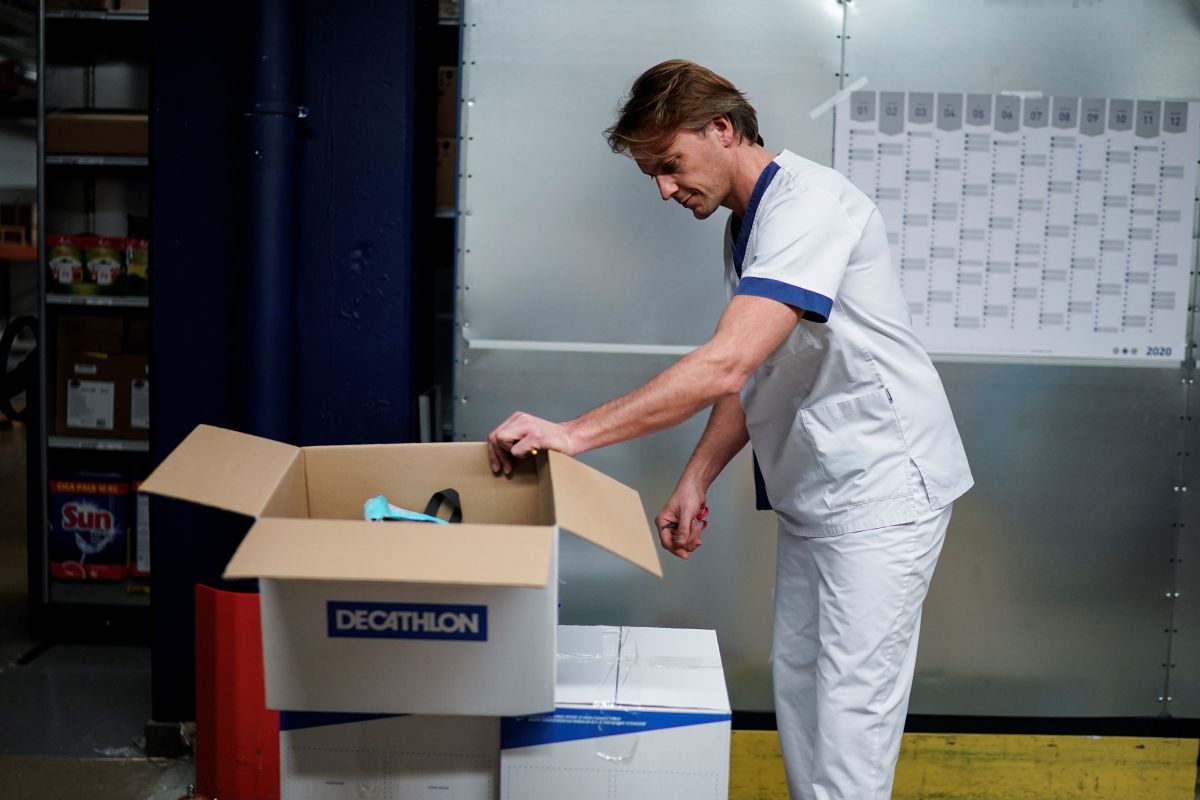As hospitals face an overload of COVID-19 patients struggling to breathe, innovative medical staff are turning to snorkelling masks from sports stores to stop their lungs from collapsing. The idea started in Italy, the worst-hit country by the coronavirus pandemic, with 10,779 deaths and 97,689 cases.
AFP reports about one such hospital, Erasme Hospital on the outskirts of Belgium’s capital Brussels which is attached to the city’s ULB university, and through it to a private spin-off, Endo Tools Therapeutics, whose know-how in 3D printing for medical use has proved invaluable.
Advertisement
“They are to be used for patients with severe respiratory problems. The aim is to avoid having to intubate the trachea of the patient and put them on a respirator,” said Frederic Bonnier, a respiratory physiotherapist at the hospital who also teaches at the university.
He spearheaded the design of a custom-made valve that fits to the top of full-face masks, where the snorkel is meant to go, allowing them to connect to standard BiPAP machines that feed pressurised air into masks.
This helps prevent the collapse of alveoli, lung air sacs needed for the intake of oxygen into our bodies and the exhalation of carbon dioxide. Pneumonia brought on by COVID-19 inflames the lung membrane and fills those sacs with liquid.
In the worst-case infections, patients have to be hooked up to respirators in intensive-care units. But respirators are in desperately short supply worldwide because of the overwhelming number of patients.
The snorkelling mask solution could be a stop-gap measure for patients on the brink of intensive-care treatment but for whom no beds nor respirators are available. Hospital masks for the less-intensive BiPAP (bilevel positive airway pressure) machines are also lacking.
Bonnier said that from Monday he will be testing 50 of the masks on patients. They are the same brand as those used by Italian doctors, donated by the French sportswear retailer Decathlon that has stores worldwide. The masks themselves are made in Italy.
He also said that, even if the tests prove conclusive, there were still questions about how many such masks could be made available by sporting companies, under what conditions. Learning of the emergency use being made of its snorkelling masks, Decathlon expressed “interest” but also prudence. “At the moment we don’t have confirmation that these solutions really work,” it said on its Twitter account. “If we see successful try-outs, and these hospitals confirm to us that some tests work, then we’ll keep you informed. But in the meantime, beware of unsourced and unverified information spread on social media in recent days.”
With rising number of coronavirus patients, many countries have reported shortage of masks. A report by Wall Street Journal says, China’s auto makers, the world’s biggest iPhone assembler and even state-owned energy companies are using their assembly lines to pump out more face masks and other medical supplies as the country responds to a coronavirus outbreak that has spread around the world.
Masks are crucial for health care workers, doctors, and nurses working on the front lines of the disease to have the proper protective gear to lower the risk of contracting Covid-19.
According to Vox, America’s mask supply is being so rapidly depleted that even the Centers for Disease Control and Prevention has suggested homemade masks, like bandanas or scarves, “as a last resort” for health care providers in “settings where face masks are not available.”
(With inputs from AFP)











